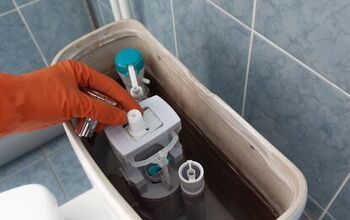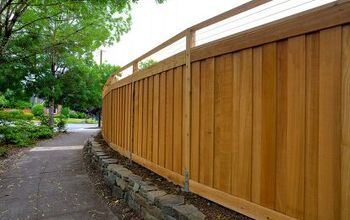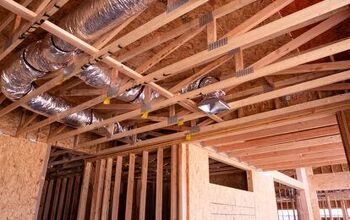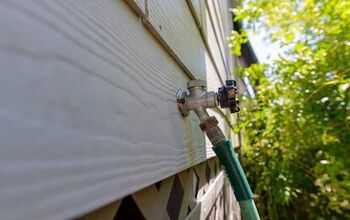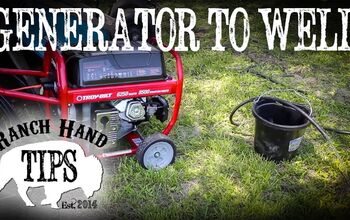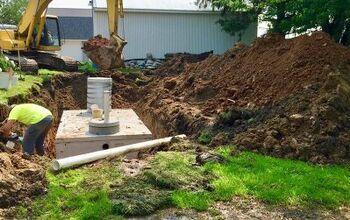Is The Best Time To Fertilize Lawn Before Or After Rain?

A lush lawn is what every homeowner wants. In fact, you may find yourself in a silent neighborly competition to see who can have the greenest lawn that is free of weeds. The key to a pristine lawn is fertilizer. But putting fertilizer down does not guarantee a perfect lawn. You need to plan around the weather, and this includes deciding whether to fertilize before or after it rains.
Do not fertilize your lawn right after a heavy rain. Allow several days for water flow to disperse and water pools to dry up. This prevents fertilizer from being carried away from your lawn and into another location, like a water supply. You can fertilize your lawn a day or two before light rain, as long as you are certain it will not involve significant rainfall.
When you are determining the perfect date on your calendar to fertilize your lawn, you need to take several factors into consideration. There is your climate and the moisture level of your soil to consider. You also need to understand the difference that a light rain versus a heavy rain can make when it comes to fertilization. This article will dive into fertilizing before and after rain in order for you to decide which method is best for your conditions.
The Ideal Conditions For Fertilizing Your Lawn
The best time to fertilize your soil is when it is moist, but there is no immediate risk of flooding over over-saturation. This means it is best not to fertilize directly before or after any anticipated heavy rain. Fertilizer needs to have time to dissolve and work its way into the lawns root system and soil.
Therefore, if you wait a few days after a rain, when there is no chance of heavy rain for several days, you should be in good shape. There is also the time of day and time of year to consider, which we will discuss in more detail later in this article. But first, you should know the pros and cons to fertilizing both before and after it rains.
Fertilizing Before Or After Rain: Which Is Better
Fertilizing before or after heavy rain is risky. Ideally, you will fertilize before or after a light rain, where there will be ample moisture distributed but no chance of flooding or runoff. Either way, you should understand the benefits and reasons for caution when you decide to choose fertilizing before or after it rains.
Why You Should Fertilize After Rain
The Soil And Lawn Is Fed And Healthy
The best benefit to fertilizing your lawn after it rains is the fact that the soil is already moist. Your lawn should always be fairly damp and healthy before fertilizing. Grass that is struggling to survive will not properly absorb fertilizer. Therefore fertilizing when your grass has had time to absorb water from rain makes it healthy and ready to take on fertilizer.
Saves You Time
When you fertilize after it rains, you won’t need to water. This can be a big time saver, especially if you have a big lawn. Watering your lawn can also be a bit tricky, since you want to make sure you soak the lawn thoroughly, not just get the top wet. Rain is very effective at giving the whole lawn a good soak.
It Lowers The Unknown Weather Variables
If you wait until after it rains to fertilize, you at least know the worst is over. Since it is not easy to know how much it will rain, waiting until after can be safer. While it might mean you need to wait an extra day (if it rains hard), you at least know the future weather is bright. Just make sure you don’t fertilize between two storms, that is very risky.
Why You Should Reconsider Fertilizing After Rain
The Lawn Might Be Oversaturated
While moist soil is good for fertilizing, overly wet and flooded soil is not good at all. Fertilizing your lawn right after it rains runs the risk that the fertilizer will not be absorbed at all. If you notice any flooding, or pools of water it is best to wait at least two days. This will give your lawn time to absorb the existing water and recover from the over saturation.
Rain Could Risk Washing Fertilizer Away
If you fertilize your lawn after it rains, you are taking a gamble. There is a chance that the fertilizer could wash away. This is especially true if you are anticipating any additional rain. Fertilizer needs time to settle and absorb into the soil. This cannot take place if the ground is oversaturated, as the fertilizer is likely to float away.
Runoff Can Have Toxic Consequences
There is also some potential danger to fertilizing after the rain. If the water from the rain carries the fertilizer off your property it can end up in places it shouldn’t. This includes lakes, where it can have negative environmental effects on the ecosystem. It can even get into the water supply.
Why You Should Fertilize Before Rain
Moisture Control
One of the biggest benefits of fertilizing before a light rain is that you have more control over the moisture levels. If you decide to fertilize before a rain, you can water your lawn and ensure it is at the ideal moisture level for fertilization. Then, you can fertilize and allow it a day or two to sink in until the planned light rain arrives.
No Risk Of Run-off
When you fertilize your lawn you need to be aware of the potential health and environmental hazards it can cause. The best way to avoid any toxic scenario is to make sure the fertilizer stays on your lawn and does not escape. If you fertilize before a light rain, you are ensuring the fertilizer is placed in the right location, and has ample time to absorb. It is just important that the future rain comes as planned and is not a heavy downpour.
A Future Rain Will Assist The Fertilizer
Rain that occurs after the lawn is completely fertilized will help it do its job. Fertilizer eventually needs to work its way to the soil and the roots. A light rain after the fertilizer has been properly spread will help it soak deep into the lawn where it will work its magic.
Why You Should Reconsider Fertilizing Before Rain
Never Fertilize When It’s Too Dry
If you are planning to fertilize before it rains, you can run the risk of damaging your grass. You should never fertilize on dry grass and soil. It can burn the grass. Also, when your lawn is struggling under these conditions, the fertilizer is not going to be effective. This means your work might be completely wasted.
The Light Rain Might Be Heavy Rain
The weather is unpredictable. Unless you live in a climate that has consistent and light rainfall, it is very hard to predict in advance if rainfall will be light or heavy. If, for some reason, the light rainfall you anticipated turns into a heavy rain, the fertilizer could all float away before it is properly absorbed.
Might Require Watering And Additional Work
If you live in a climate where the soil tends to dry out, you will have to do extra work if you plan to fertilize before the rain. This is because the soil is likely dry, and you never want to fertilize on bone dry soil, as this could render the fertilization useless. Therefore, you need to pre-water your soil thoroughly. This can turn the fertilization process into a much more time-consuming project.
Other Factors When Deciding A Time To Fertilize Your Lawn
Temperature
When you fertilize your lawn, not only should you consider the moisture level of the grass and ground, but also the temperature. If the ground could freeze, you don’t want to fertilize. Also, if it is too hot, it the grass might be struggling, and it also might be difficult to keep the soil dry. Try to fertilize on mild days between 50 and 70 degrees.
Time Of Day
It is best to apply your fertilizer later in the afternoon. You want to apply it well before it gets dark. You also after the hottest part of the day when the sun is strongest and most damaging. If you apply it before the sun is at its strongest, the sun can actually burn the grass, which can damage the grass. This would give you the opposite results you desire.
Time Of Year
Fertilizing the lawn is an undertaking most people do only once, or possibly twice, each year. Since it is such a rare activity, you should take the time to consider not only rainfall, but also the best time of year to fertilize your lawn. Usually springtime after everything has thawed and dried up a bit is a popular and productive time to do an annual fertilizing. Fall fertilizing is popular, especially for a second fertilization before the winter.
Final Thoughts On Fertilizing Lawn Before Or After Rain
Fertilizing is a great way to enhance your lawn’s appearance and rid it of weeds. When you prepare to fertilize, however, be sure you don’t lay your fertilizer directly before or after a heavy rain. It is safe to fertilize a few days before a light rain, but heavy rain can wash away your fertilizer. For best results, wait a few days after rain, this way you know the lawn is moist but not oversaturated. Late afternoon, and days when it is not too hot or cold make for ideal fertilizing.

Tom Gaffey is an expert writer who currently resides in Washington D.C. Tom has a passion for real estate and home improvement writing, as well as travel and lifestyle writing. He lived the last twelve years in Hawaii where he worked closely with luxury resorts and event planners, mastering his knowledge of aesthetics and luxury products. This is where he found his passion for home improvement and a keen interest in DIY projects. Currently, Tom resides in Washington D.C, and also working on his debut fiction novel.
More by Tom Gaffey



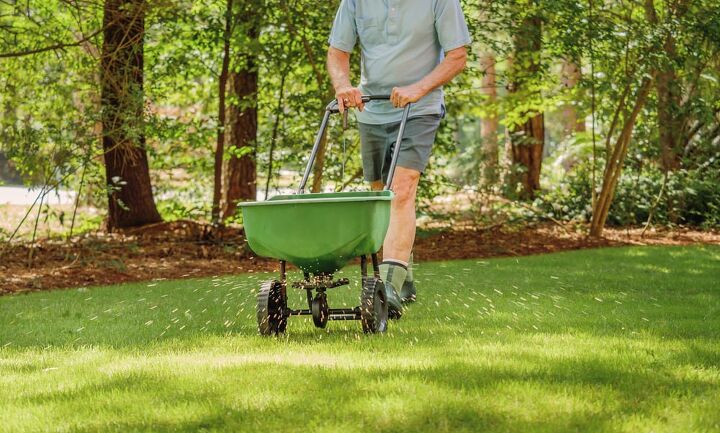






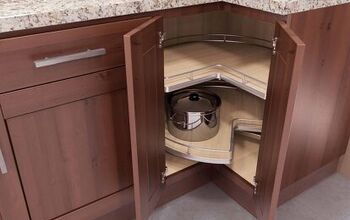
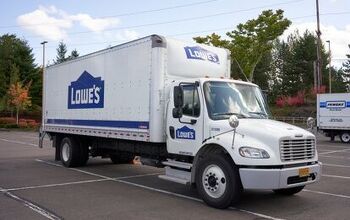
![10 Best Zero Turn Mowers – [2022 Reviews & Ultimate Buyer's Guide]](https://cdn-fastly.upgradedhome.com/media/2023/07/31/9070522/10-best-zero-turn-mowers-2022-reviews-ultimate-buyer-s-guide.jpg?size=350x220)
![10 Best Electric Lawn Mowers - [2022 Reviews & Top Rated Models]](https://cdn-fastly.upgradedhome.com/media/2023/07/31/9070486/10-best-electric-lawn-mowers-2022-reviews-top-rated-models.jpg?size=350x220)
